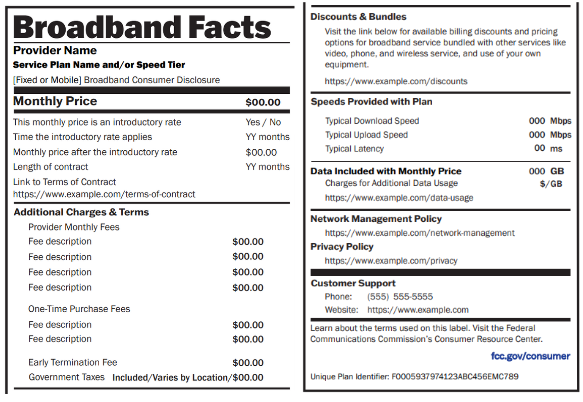ITIF Panel Debates Government Intervention in Broadband Networks
WASHINGTON, June 2, 2011 – The Information Technology & Innovation Foundation assembled a panel Wednesday to debate the merits and minuses of government support of broadband networks. The Oxford-style debate, “Governments Should Neither Subsidize nor Operate Broadband Networks to Compete with Comme
Updated, June 2, 3:55 p.m. EDT: This article has been corrected with respect to comments by Jim Baller.
WASHINGTON, June 2, 2011 – The Information Technology & Innovation Foundation assembled a panel Wednesday to debate the merits and minuses of government support of broadband networks.
The Oxford-style debate, “Governments Should Neither Subsidize nor Operate Broadband Networks to Compete with Commercial Ones,” included four panelists. Rob Atkinson, President of ITIF and Jeff Eisenach, Managing Director and Principal of Navigant Economics argued against government intervention; Jim Baller, President of Baller Herbst Law Group, and Chris Mitchell, Director of Telecommunications at the Institute for Local Self-Reliance argued in favor.
The arguments against government intervention centered largely around the harms to private-sector competition and duplicative nature of government sponsored networks that compete with private ones. The pro-government sponsorship side argued that there are significant market failures in the sector and that governments, especially local ones, are in a unique position to assess the overall needs of the community without deference to profit models.
Rob Atkinson, President of ITIF, steered the beginning of the debate to the problem of government overbuilding – that is where a government broadband network is built where another network already exists.
“[Overbuilding] takes money out of the broadband ecosystem that could be used to bring prices down for the rest of us or improve [capital expenditures into other networks] for the rest of us,” said Atkinson.
Moreover, he said, governments that overbuild networks tend to impede competition rather than foster it. Because profit margins in the industry do not approach 50 – 60 percent, the addition of another competitor in the field will raise the cost per consumer to network providers, thereby eventually raising costs to the consumer.
Mitchell, however, asserted that fundamental flaws in the marketplace necessitate government intervention to supply needed infrastructure.
“Market competition has failed,” said Mitchell. “Americans pay too much for too little compared to peer nations.”
Mitchell also questioned whether markets are truly in competition with each other, given significant variations in service quality and speed.
“The question [of whether networks compete] is vague,” he said, “is fiber really duplicative of a DSL network?”
Following his fellow panelist’s point, Baller noted that in several instances, municipalities unsuccessfully attempted to convince network providers to lay networks before building their own.
“Community leaders have almost always gone to incumbents and pleaded with them to provide networks first,” he said, pointing to the success of Ft. Wayne, Indiana as a rare example of an incidence where an municipality convinced a provider to lay a high-speed fiber network. In many other instances, said Baller, communities have been unable to convince established carriers like Verizon to connect them to fiber networks.
Though municipalities may have a unique eye to the needs of the community, government-supported networks still cost money and will always drag unwilling participants with them, pointed out Eisenach.
“I want to challenge [the premise] that money is free,” said Eisenach. “When you levy a tax to support a broadband network, you are taking money from people, many of whom don’t want to give it.”
A video of the ITIF Debate, “Government Should Neither Subsidize Nor Operate Broadband Networks That Compete with Private Ones” can be found here.










Member discussion